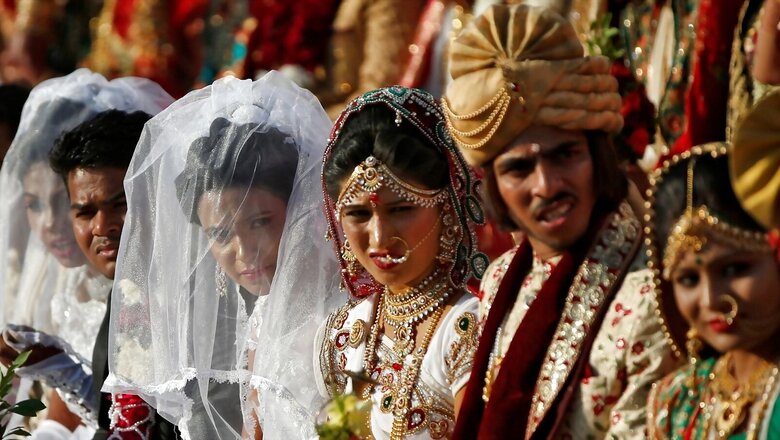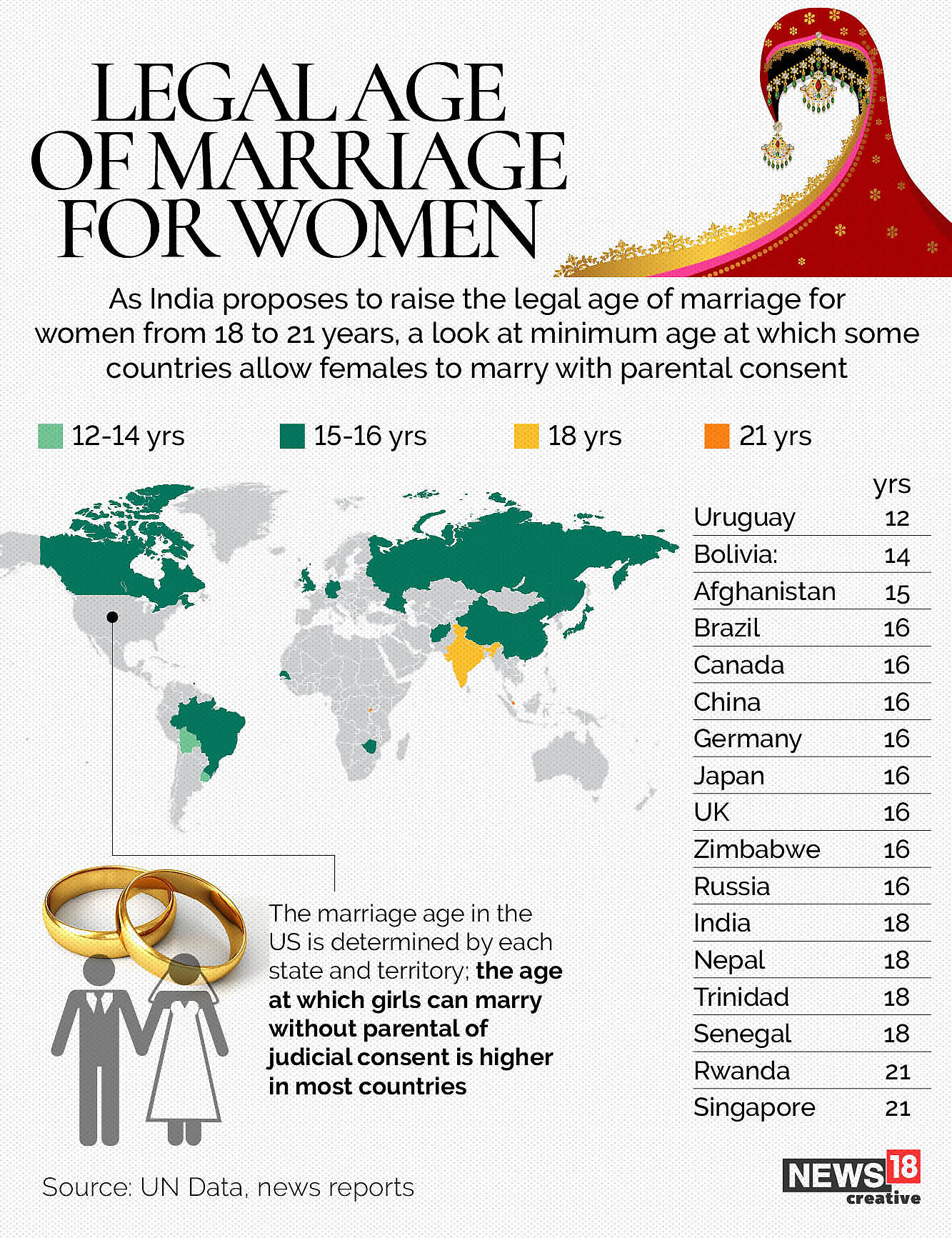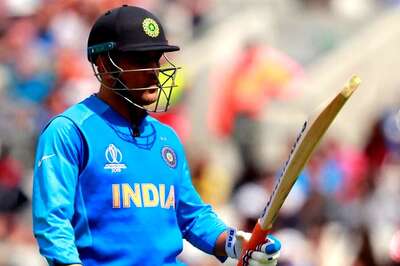
views
The minimum marriageable age of girls has been proposed to be made religion-neutral at 21 years of age, according to a Cabinet decision to bring in a new law soon that will amend the ‘The Prohibition of Child Marriage Act, 2006’ (PCMA). Top sources said that the government is likely to introduce The Prohibition of Child Marriage (Amendment) Bill, 2021, in Parliament on December 20 during the Winter Session.
The Prohibition of Child Marriage (Amendment) Bill, 2021, proposes to amend the PCMA in order to make the age of marriage equal for both males and females at 21 years. At present, the legal marriage age for males and females is 21 and 18 years, respectively.
“There will be consequential amendments in laws relating to the age of marriage i.e. ‘the Indian Christian Marriage Act, 1872’; ‘The Parsi Marriage and Divorce Act, 1936’; ‘The Muslim Personal Law (Shariat) Application Act, 1937’; ‘The Special Marriage Act, 1954’; ‘The Hindu Marriage Act, 1955’; and ‘The Foreign Marriage Act, 1969’. Also the laws namely ‘The Hindu Minority and Guardianship Act, 1956’; and ‘Hindu Adoptions and Maintenance Act, 1956’ pertain to this context,” a government source said on the development.

Personal laws of various religions pertaining to marriage had their own standards so far – for instance, while the Hindu Marriage Act fixed the marriageable age at 18 years for girls and 21 for men, the personal law for Muslims allowed the marriage of girls at 15 years of age. Courts in the past had said the PCMA Act, 2006, was secular in nature and would prevail upon the personal law.
Government sources said the amendment bill would be brought to Parliament soon and termed it a “historic and momentous decision that has the potential of transforming the lives of women and girls, and is a step forward in the direction of gender equality”.
Sources also said the Fundamental Rights and Directive Principles of State Policy, and particularly the Right to Equality and Right Against Exploitation under the Constitution of India guarantees gender equality. “The proposed legislation is a strong measure towards the commitment of the government for the same as it will bring women on equal footing with males,” explained the source.
The sources also added that as India progresses, further opportunities will open up for women to pursue higher education and careers. “There are imperatives for lowering Maternal Mortality Rate, Infant Mortality Rate and improvement in nutrition levels as well as an increase in Sex Ratio at Birth. These are the main reasons for effecting the proposed legislation. It will also result in women attaining psychological maturity before marriage, exercising better reproductive rights and better place in life skills, including family planning, use of contraceptives, etc,” the source said.
Read all the Latest India News here


















Comments
0 comment